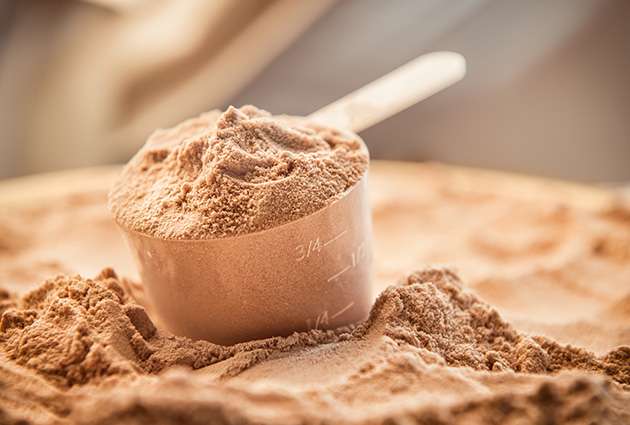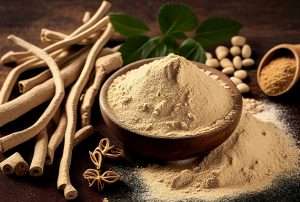The Complete Guide to Ashwagandha and the Benefits of Ashwagandha Supplementation
The Complete Guide To Ashwagandha
Have you been seeking answers to your numerous healthcare issues when you came to this article? Are you trying to find treatments for stress & anxiety? Or perhaps you were curious after hearing about Ashwagandha’s enchanted revitalizing properties.
However the case may be, you have arrived at the perfect spot seeing as this blog will continue providing you with all the information you need about Ashwagandha, among the most potent Ayurvedic medicines.
People are afraid to use ashwagandha as they are unaware of its entire range of benefits and feel that it might end up harming their bodies. Well, ashwagandha is not a chemical, it is a medicinal herb. Plix’s AshwaCalm Effervescent contains KSM 66 variant of Ashwagandha, its most potent form along with Bhringraj and Brahmi extracts to give you the entire benefits of this ancient medicinal herb.
Defining Ashwagandha
Ashwagandha often called “Indian Winter cherry” or “Indian Ginseng” was a mainstay of traditional Indian medicines. You may well be familiar with Ashwagandha churna, a powder that has been carefully sintered and can be combined with some water, ghee, or honey. The therapeutic properties of this powder have made it quite well-liked.
Following that, let’s look at five fascinating details regarding Ashwagandha to have a better understanding of what keeps it unique. A perennial plant called ashwagandha can be found in portions of Africa, the Mideast, and India. Almost every element of the bush has a tremendous value in a certain way.
The Sanskrit terms “Ashwa,” meaning signifies horse, and “Gandha,” which indicates odour, are combined to form the term Ashwagandha. ‘One acquires longevity, rediscovers youth, achieves a sharp mind and intelligence and escapes from ailments, gets a glossy complexion, and endurance like a horse,’ according to Ayurvedic scholar and philosopher Charaka (100 BC). Ashwagandha is classified as a Rasayana in accordance with conventional Indian taxonomy, which indicates it aids in extending longevity. Ashwagandha is categorized in contemporary medicine as that an adaptogen, which implies it aids in the body’s capability to cope with stress. The plant is best recognized for its restorative and medicinal properties.
The herb is often categorized by Ayurveda as Vajikara, which encourages good sexual function, and Bhalya, which boosts strength. These straightforward Ashwagandha findings illustrate how Ayurveda advises using it. Let’s look at the various medicinal uses for such a herb’s various bits.
Benefits Of Ashwa
Ashwagandha for anxiety:
Ashwagandha helps the body cope with stress because it is an adaptogen. It can boost cognitive function and minimize the negative effects of hopelessness and anxiety. By easing their suffering, this plant can benefit those who suffer from stress and anxiety disorders. In 75-day research of individuals suffering from chronic stress, those who took ashwagandha pills reported on average 69% less anxiety and 11% less insomnia than others.
Ashwagandha for inflammation:
The body’s natural response to ailments including infection, poisons, and trauma is inflammation. In order to restore equilibrium, your body will naturally develop an anti-inflammatory reaction. The body, however, is unable to control the inflammatory response when there is persistent pain. Chronic pain and unbalance are the results. The herb that has shown efficacy in decreasing inflammation is ashwagandha. Tea made through the leaves of ashwagandha is beneficial in reducing inflammation.
Ashwagandha for acne:
The antimicrobial properties of ashwagandha root help to shield the skin from infections and acne. Additionally, it increases the skin’s collagen levels, preventing ageing. Try using natural face packs with Ashwagandha powder if you have acne. This acne treatment eliminates blackheads and pimples, lightens scars, evens out skin tone, and treats inflammation.
Ashwagandha for skin sensitivity
It is one of the 15 components of the well-known Lakshadi Thailam, which is known for treating fever, preventing infections, and increasing immunity. Sensitive or skin doused in inflammation is calmed and soothed by ashwagandha. Therefore, it is perfect for a newborn’s sensitive precious skin.
Ashwagandha to build muscle:
It is a vital component in the well-known Ayurvedic Bala Oil. This traditional treatment is intended to reduce pain, and exhaustion, and to increase energy and immunity in expectant and new moms. Additionally, it increases skin elasticity and muscle strength, reducing stretch marks during pregnancy.
Ashwagandha for sleeplessness
Ashwagandha is known to have sleep-inducing qualities, which may be helpful to persons who have insomnia. Before bed, try drinking a warm cup of milk with ashwagandha powder to help you relax and sleep better.
Ashwagandha as we use it traditionally:
We discussed how the Ashwagandha herb’s entire body is incredibly beneficial. Start with the most popular way to consume Ashwagandha, which is as churna. Did you know that the famous Ashwagandha churna is made from the plant’s roots? It could also be made directly into a paste by mixing it with water, ghee, or honey.
The advantages of this powder are countless. The powder is largely used to treat illnesses including constipation, sleeplessness, neurological breakdown, goitre, and more. To relieve pain and inflammation in the joints, a paste made from the powder is also employed or utilized.
Despite the fact that there are many distinct variants of ashwagandha, the Nagori Ashwagandha is the best. For instance, iron-rich Ashwagandha leaves can be used to make herbal tea despite their bitter flavour. They aid in the treatment of illnesses like anaemia and blood loss brought on by heavy periods. Ashwagandha leaves are used to make a herbal tea that boosts energy and reduces fever and uncomfortable swellings.
The flowers have aphrodisiac, diuretic, astringent, and depurative properties. In order to clear up white spots on the cornea, the seeds are combined with an astringent and rock salt since they are anthelmintic (helps kill parasitic worms). Hysteria, anxiety, melancholy, memory loss, syncope, and other conditions are treated with ashwagandharishta, an ashwagandha health tonic made from its seeds.
Isn’t it fascinating to learn how one herb can be so helpful?
The primary chemical constituents of ashwagandha are what give it its unique medicinal properties. All vegetation has a wide range of special compounds known as phytochemicals, which is how it works. Broadly said, since plants cannot move, they must contain certain phytochemicals, which have specific roles to play. Some phytochemicals work as an immunological system in response to antigens that are attacking. Some are present because of the plant being immobile and requires to prevent bugs from eating them in order to protect themselves. Some phytochemicals only facilitate the plant’s quick and healthy expansion.
These compounds can overlap with those that activate pathways in our cells when ingested, which can have a significant impact on our bodies. The high concentration of these phytochemicals in ashwagandha makes it particularly unique and beneficial.
FAQs or Frequently Asked Questions
1. What advantages do Plix Ashwa Calm pills offer?
Every Plix Ashwa Calm tablet contains the beneficial ingredients KSM-66 Ashwagandha, Brahmi, Bhringraj, and Vitamin D3, which improves sleep quality and intellectual health by lowering stress and raising sperm motility, sperm concentration, and testosterone levels.
2. At what time must I take Ashwacalm?
You can take Ashwacalm at any time of the day. To encourage restful sleep, take one tablet following breakfast or lunch and another just before bed.
3. What are the negative impacts of Ashwa Calm and who can use it?
For people who are struggling with stress and anxiety, Ashwa Calm is advised. It is best to seek the advice of your physician before ingesting the products if you are nursing, pregnant, diabetic, or on any drugs. We do not recommend that anyone under the age of 18 take this product. There aren’t any side effects from using our vegan and all-natural products.
4. Can I take two Ashwa tablets with a beverage? When and how frequently should I take Ashwa Calm?
You can surely go on to take two tablets with a drink. The benefits of taking two tablets at once are doubled, and it is 5x more enjoyable and tasty. At your leisure, we advise taking Ashwa Calm twice daily. It is advised to leave a gap of 4-5 hours with each dose.
5. How does Plix Ashwa Calm affect me if I stop using it?
It is advised that you continue living a healthy lifestyle and eating nutritious food after stopping to use Ashwa Calm. You will notice results waning after 6 to 9 months of not taking Ashwa Calm, which indicates that you need to resume Ashwa.















